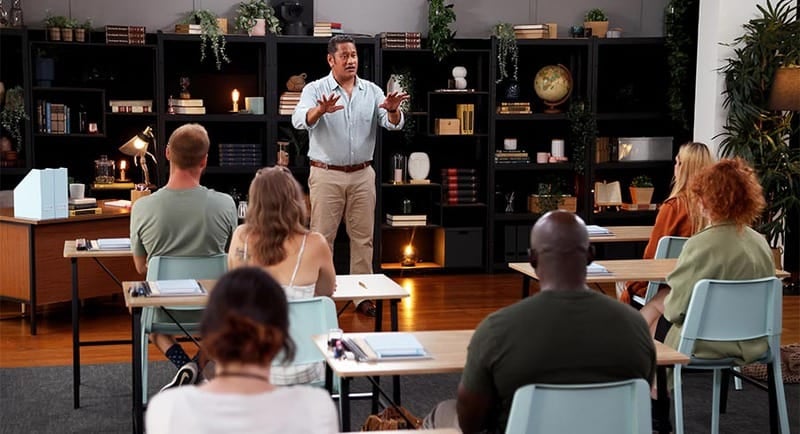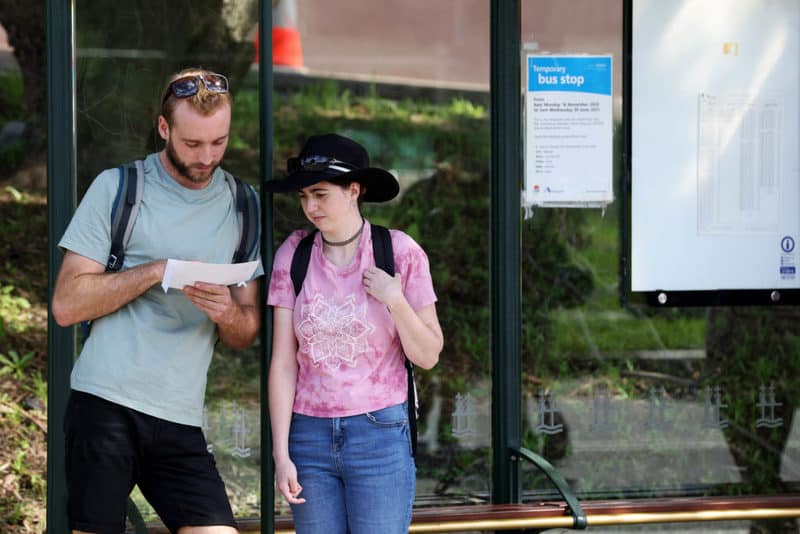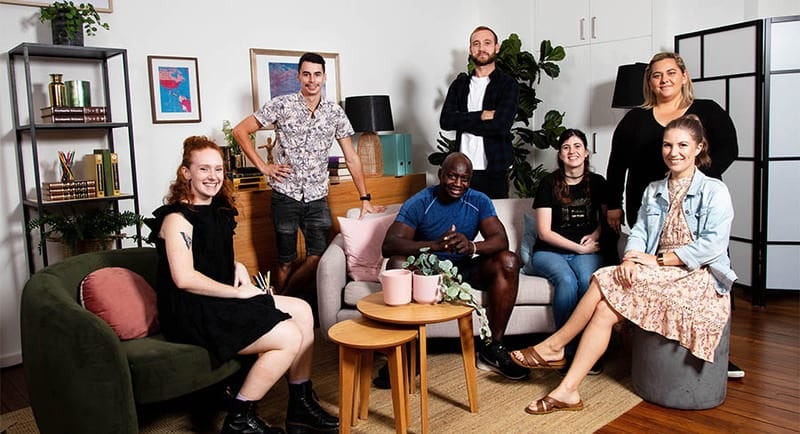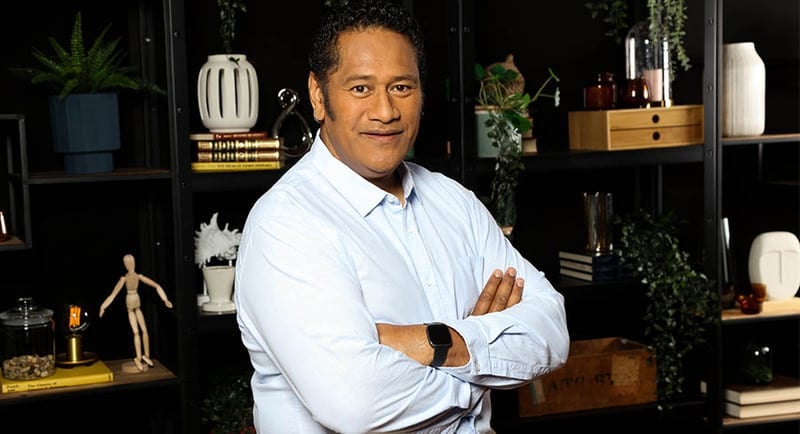More than 43% of Australian adults don’t have the necessary literacy skills needed for everyday life. That’s about seven million Australian adults, many of whom are not able to read a text message, decipher the destination of a train or bus, or use the internet. Hosted and narrated by literacy advocate Jay Laga’aia, SBS’s documentary Lost for Words follows eight Australians taking on an intensive nine-week adult literacy program.
Mediaweek spoke to Laga’aia about how poor literacy affects people’s lives and why the Lost For Words participants signed up.

Lost for Words host Jay Laga’aia with students in the classroom.
Already having worked as a literacy advocate, Laga’aia says that there were multiple reasons he signed up for the documentary.
“I knew the holes that I had in my literacy background. I can read and write, the problem is that it’s comprehensive for me – it’s being able to sight-read, it’s being able to understand what you’re reading, and tell stories and create word pictures.
“The biggest reason why I joined was that I wanted people to see an ethnic face up there to say ‘look, this also is about you. I know that some of you speak English really well, but you can’t read or write it. That’s the reason why you get in trouble with banks, or people come and knock on your door and say just sign this, you sign it because you want them to go away, but what you don’t understand is like you signed your life away from a vacuum cleaner that you can’t afford.’”
The Extent of the Issue
With seven million Australian adults impacted, Laga’aia says people don’t tend to realise the extent of the problem unless they are directly affected by it.
“You have people that go ‘What do you mean he just wants to read the menu? Anyone can read a menu.’ I say to them, okay, I’m going to give you a book. I’m going to give you The Hungry Caterpillar, but it’s written in Korean, and I want you to read it. You know the story, but you don’t know the words. That’s the same as these people. They know the story, they just don’t know the words.
“I’ll go to a restaurant, grab a menu and say ‘can I have this without the bok choy and this and that’, where they go into a restaurant, they will sit, they will look and ask themselves how can I get around not telling them I can’t read? Does this menu have pictures on it now? What can I smell? I know this is a Chinese place so surely they make fried rice and sweet and sour pork. It’s all that stuff. We don’t think about that because we take it for granted, but that’s all the stuff that they have to think about even before they walk into a store.”

Lost for Words students Mike and Shelle
The Participants
Eight volunteers have put their hands up to take part in the program, something that Laga’aia said takes a lot of guts.
“There’s an old saying that acting is standing up naked and turning around slowly, and that’s exactly what they’re doing. They’re standing up naked with the shame that they feel that they have. And they turn around slowly.
“The participants measured successes in inches. They turned up every day, and as they turned up every day they realise that the people that were there were in the same boat as them, and they were so supportive. They learned and they failed together, and in doing so they realise that they didn’t die, and they weren’t shamed about it. When they came across problems, they knew that they could cry it out, but they weren’t going to give up.”
The difference between the participants at the beginning of the program and the end was something that took Laga’aia by surprise looking back.
“When I went to do post-production on this, I saw the opening clip of it and I cried. I cried because I saw old faces, I saw the fear in them in the room when I first walked in. They didn’t want to save the world or create a Covid vaccine, they just wanted something simple, like to write a birthday card to their daughter.”

The Lost For Words participants
Giving Hope
Ultimately, Laga’aia hopes that Lost For Words leaves people with the message that poor literacy doesn’t have to be a lifelong problem.
“You can’t judge a book by its cover. The idea of not being able to read or write is not a disease, you can fix that problem but you have to be committed to doing that. I know there’s that saying – the best time to grow a tree was 20 years ago, the next best time is now.
“I hope that SBS gives it a nod for a second season. Not only because I need a job, but also because the amount of people that were fearful to put their names down will see the results of this, and the end result will blow people away.”
Lost For Words premieres 8.30pm Wednesday 22 September on SBS and SBS On Demand
